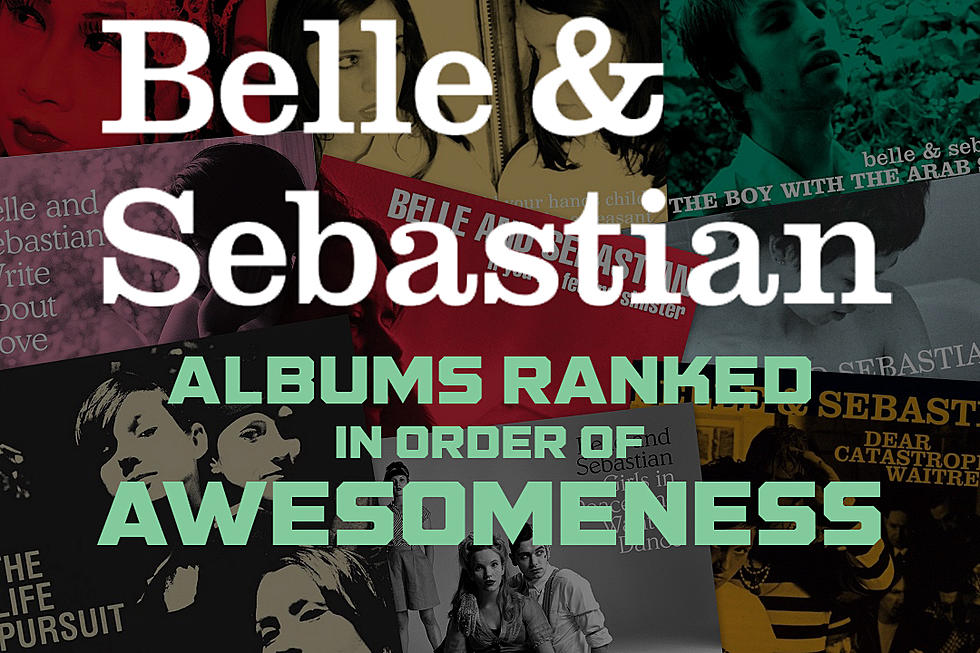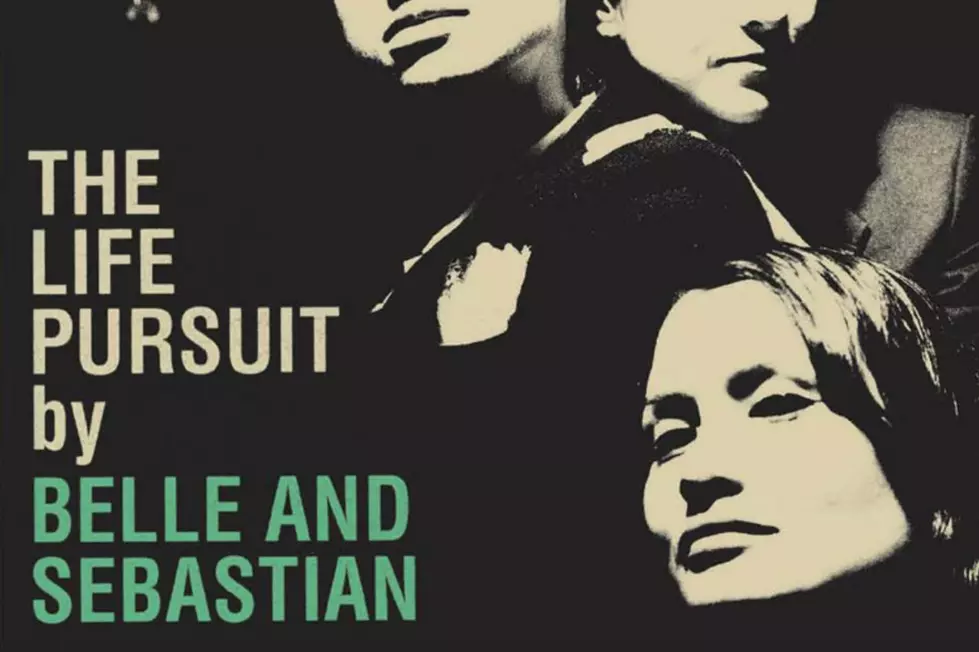20 Years Ago: Belle and Sebastian Want to Know ‘If You’re Feeling Sinister’
The ’90s were rife with rock stars to worship — towering personalities and voices with pizzazz, anti-establishment gusto and ego to boot. Yet in the din of all the loud guitars and angry lyrics, the soft-spoken and fragile Stuart Murdoch became an unlikely musical hero to many. His fey, bookish band Belle and Sebastian eschewed narcissistic swagger and instead celebrated the underdog. With their second album, If You’re Feeling Sinister, which was released on Nov. 18, 1996, the Glaswegian outfit led a successful twee rebellion against machismo and solitude.
Their debut in mid-1996, Tigermilk, was created as Murdoch’s college project. Culled together by somewhat reluctant members of the local music scene, Belle & Sebastian cobbled together dreamy '60s-influenced ditties. Their bent was more Marianne Faithfull than Magical Mystery Tour, with the alluring vocalists/instrumentalists Isobel Campbell and Sarah Martin playing as important a role as Murdoch and his male compatriots.
Though Tigermilk didn’t gain immediate momentum among the intelligentsia, Murdoch gained a creative momentum after its conception. He’d suffered from a form of chronic fatigue syndrome, which left him bedridden during some of his most formative years. Yet after writing and recording Tigermilk, he “wanted the band to be like a factory,” he wrote in his online diary. “I wanted to have an instant and extensive back catalogue! I guess what [I] really wanted was to make up for all the time that I’d wasted – 7 years of being out of the game: ill, enfeebled and useless.”
Much of Sinister was catharsis for his chronic fatigue. The opening whisper of “The Stars of Track and Field” gave voice to the runt always picked last for gym class, lamenting the “beautiful people” of the popular cliques. “Mayfly” sought solace in an insect while the protagonist was locked indoors on sunny days thanks to his illness. And in particular, the weepy “The Fox in the Snow” served as a tender anthem for wayward souls. Solemn piano and acoustic guitar accented the poetry of a downtrodden canine seeking warmer climes. It paralleled Murdoch's own journey to San Francisco in the early '90s to ease his wariness and improve his health.
If You’re Feeling Sinister grabbed audiences because of its tightrope walk between cutesiness (the chaste title track) and sardonicism (the flippant “Seeing Other People”). Additionally, the puzzle pieces of Stevie Jackson (vocals/guitar), Stuart David (bass), Chris Geddes (keys) and Richard Colburn (drums) fit perfectly into Murdoch’s mellow universe. Sinister established the B&S sound as spritely, verbose chamber pop written for those too timid to venture into the mosh pits. It evoked berets, leather-bound books, brushed percussion and knee skirts, and gauzy memories of adolescence and longing.
“Get Me Away from Here, I’m Dying” stands among Belle and Sebastian’s signature songs. Murdoch put a mirror to himself, exalting the genres that soothed his ailments. “Nobody writes them like they used to / So it may as well be me,” he sang, taking up the banner for nostalgic devotees. The post-grunge era didn’t have to be so garish — with Murdoch in charge, it could be lighthearted yet brainy. It’s this duality of sound and subject that has made If You’re Feeling Sinister such a treasure of the modern music trove.
Belle and Sebastian Albums Ranked in Order of Awesomeness
More From Diffuser.fm









